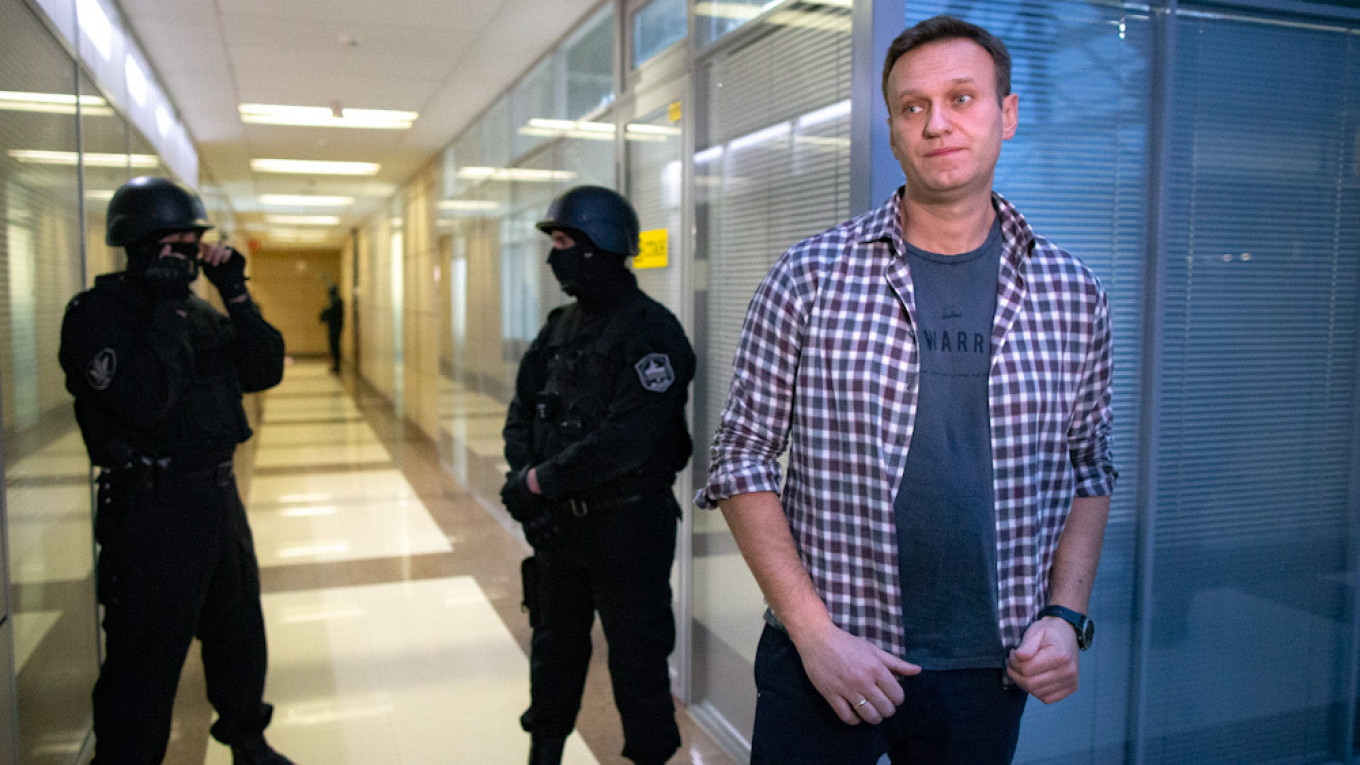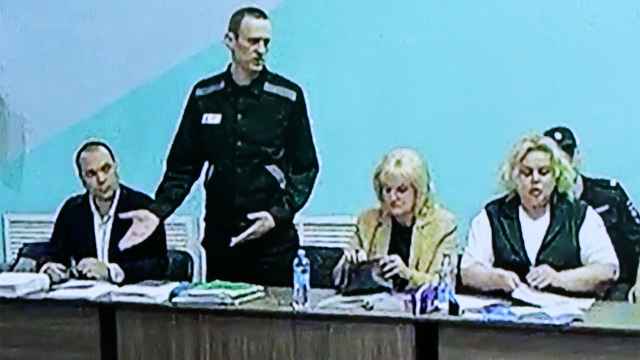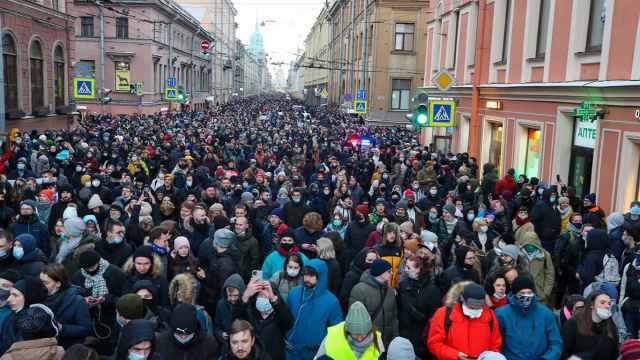Russian lawmakers passed a bill Tuesday to ban the public dissemination of data about security and law enforcement members.
The move follows leading opposition figure Alexei Navalny’s viral YouTube video of a phone call with one of his alleged poisoners. That agent and other purported Federal Security Service (FSB) agents’ identities were revealed by the investigative outlet Bellingcat, which regularly uses phone records and flight manifests obtained on the black market in its investigations.
The latest piece of legislation prohibits the sharing of information about police and investigators as well as Foreign Intelligence Service (SVR) and FSB agents.
The new law will protect security members’ personal data “regardless of direct threats to their security,” an explanatory note states. Previous legislation made it a criminal offense to share the security members’ data when doing so threatened their lives.
Under the newly passed changes, sharing security officers’ data will only be allowed as part of a criminal investigation or compliance with anti-corruption legislation.
Members of Russia’s lower house of parliament, the State Duma, passed the security officers’ data-protection bill two weeks after its submission. Senators are expected to vote on the bill and send it to President Vladimir Putin’s desk during their last session of the year Friday.
The bill is part of a wider set of legislation cracking down on online dissent ahead of Russia’s 2021 parliamentary elections, ahead of which Navalny has been encouraging supporters to vote against Kremlin-backed candidates.
Navalny fell into a coma on Aug. 20 and was flown to Germany, where European scientists determined he had been poisoned with the Soviet-designed Novichok nerve agent. The Kremlin denies that Navalny was poisoned and accuses its European counterparts of withholding evidence.
In Navalny’s video viewed 16 million times in 24 hours, a voice identified as FSB chemical warfare specialist Konstantin Kudryavtsev divulged key details of the poisoning to Navalny.
The FSB has dismissed Navalny’s phone call with Kudryavtsev as a “fake,” foreign intelligence service-backed "provocation aimed at discrediting" the agency.
Navalny’s Anti-Corruption Foundation (FBK) said it planned to petition Russian investigators and the FSB itself to probe the allegations made in the video.
President Vladimir Putin last week confirmed Bellingcat's reporting, which was based on flight manifests it obtained, that FSB agents had been following Navalny.
A Message from The Moscow Times:
Dear readers,
We are facing unprecedented challenges. Russia's Prosecutor General's Office has designated The Moscow Times as an "undesirable" organization, criminalizing our work and putting our staff at risk of prosecution. This follows our earlier unjust labeling as a "foreign agent."
These actions are direct attempts to silence independent journalism in Russia. The authorities claim our work "discredits the decisions of the Russian leadership." We see things differently: we strive to provide accurate, unbiased reporting on Russia.
We, the journalists of The Moscow Times, refuse to be silenced. But to continue our work, we need your help.
Your support, no matter how small, makes a world of difference. If you can, please support us monthly starting from just $2. It's quick to set up, and every contribution makes a significant impact.
By supporting The Moscow Times, you're defending open, independent journalism in the face of repression. Thank you for standing with us.
Remind me later.






